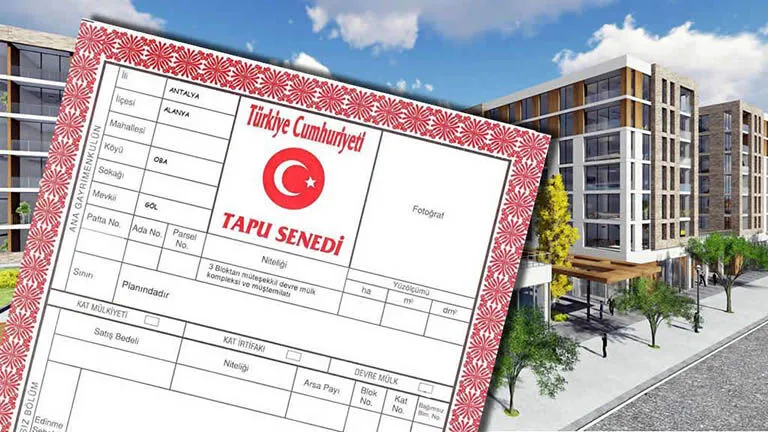A shared title deed is a type of land registry document that indicates a property is owned by more than one person. This deed specifies the ownership percentages of each stakeholder. For example, if there are three co-owners of a plot, the deed would state that each holds a 33% share. Even though the deed is a single document, it means the property is jointly owned and typically used collectively. These types of properties are especially common in investment regions like Antalya.
What Does Shared Title Deed Mean?
A shared title deed legally signifies that a piece of real estate is owned by multiple individuals. Co-owners can acquire their shares through inheritance, purchase, or donation. Each stakeholder has ownership rights proportional to their share but cannot independently make decisions about the entire property.
Risks of Shared Title Deeds
Shared title deeds come with certain legal and practical risks. The most common issues include:
- Disputes among co-owners
- Need for co-owner approval before selling the entire property
- Unequal benefit from the property if only one party is using it
- Lengthy procedures for selling or dividing the property
- More complicated management when the number of heirs increases over time
Because of these reasons, it’s essential to seek professional legal advice when buying a property with a shared title deed.
Can You Buy a Shared Title Deed?

Yes, you can purchase a property with a shared title deed. However, prospective buyers should understand that they won’t have full authority over the property. It’s critical to thoroughly research the share percentage and the identities of the other stakeholders. For those looking to buy a vacation home, this becomes even more important. Drafting a usage protocol among stakeholders can help clearly define usage rights.
How to Sell a Shared Title Deed Property
When selling a shared property, you can only sell your own share. Co-owner consent is not required for this transaction, but it does trigger the “right of first refusal” (preemption right). This gives the other co-owners a legal option to purchase the share before it is sold to an outsider. If they choose to exercise this right, they must take legal action within a specified period after the sale.
Can I Sell My Share in a Shared Title Deed?
Yes, if you own a share in a property, you can sell it independently. However, doing so will grant the other co-owners the preemption right, which may create uncertainty for the buyer. Therefore, it is advisable to inform the co-owners in advance and provide official notification through a notary.
How to Convert a Shared Title Deed to a Private Title
It is possible to convert a shared title deed into individual (private) title deeds, but this depends on the nature of the property and mutual agreement among co-owners. There are two common approaches:
Zoning and Parceling
If the land is zoned and large enough, a subdivision can be made among co-owners. This allows for the issuance of independent title deeds under each stakeholder’s name.
Establishing Condominium Ownership
If the property includes a building, co-owners can create floor easements and later convert them into full condominium titles, granting separate title deeds for each independent unit.
These procedures require applications through the municipality and land registry office. Professional mapping and land planning services are also necessary. This process is particularly crucial for those investing in real estate in regions like Antalya.
Key Considerations When Buying a Shared Title Deed
While a shared title deed can offer opportunities when properly managed, it also entails risks. To protect legal rights, it’s vital to work with real estate and legal professionals during purchase, sale, or conversion procedures.









